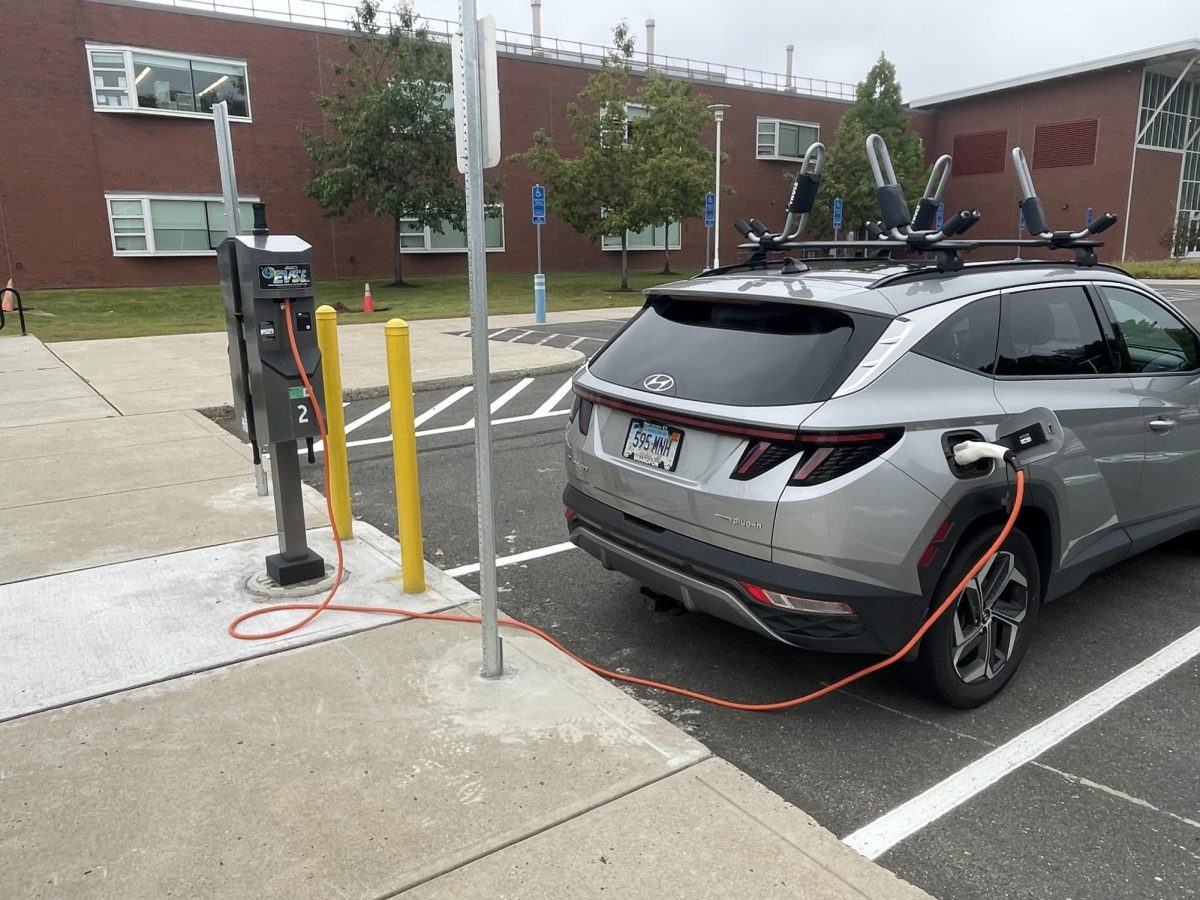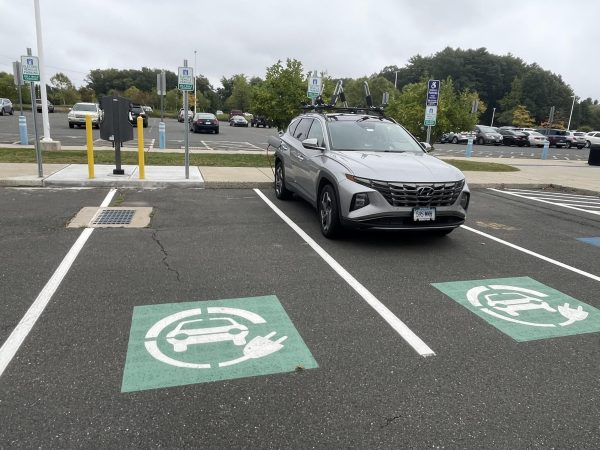
Collin Moffitt
Nora Uricchio, who teaches radiation therapy at Manchester, uses an EV station to charge her hybrid Hyundai Tucson.
Electric vehicle charging stations are now available on campus for the community – including students – to use in the staff parking lot adjacent to the East parking lot.
Since being activated in the spring semester they have provided convenience for drivers of electric vehicles. They were installed by EVSE, a private contractor in Enfield, according to Andrew Fraser, associate dean of operations at CT State Community College Manchester.

Joshua Moon-Johnson, the new president of CT State Community College Manchester, Middlesex, and Asnuntuck, drives a 2023 Tesla Model Y and commented on the convenience and price of the charging stations.
“Yesterday, I charged the battery, probably about 60% of the battery, and it cost $4.66,” Moon-Johnson said. “So what I’m seeing is it charges about 10% per hour, and so all of my charges have been $1.20. The most expensive one I’ve had was $6.”
To put the pricing into perspective, an equivalent amount of gasoline put into the average gasoline-powered passenger car would cost around $25, with the average gas price in Connecticut currently at $3.10 per gallon.
Nora Uricchio, who teaches radiation therapy at Manchester, uses a station to charge her hybrid Hyundai Tucson.
“It [the charging station] usually charges me between $1.75 and $3.50 with a hybrid plugin, which takes about 2 hours for a maximum of 30 miles…,” she said. “It saves me money and gets me better mileage.”
Despite the convenience of being able to charge while at work and the economic benefits of driving an EV compared to a gas-powered car, Moon-Johnson admitted confusion about the location of the charging stations at Manchester.
“I noticed the other day that the ones here…are in the employee parking lot.” Moon-Johnson said, “I think that is why most people probably don’t [know it’s open to students].”
But campus police confirm that the charging stations are open to everyone.
“We understand that the chargers are for everyone to use,” wrote Sgt. Donna Manning of the campus police department in an email. “Once the vehicle is charged, if the person should need to attend classes or conduct business on campus and they do not have a [faculty or staff parking] permit, they should move into East or West lot parking areas. We have been giving written warnings for vehicles that are parked in staff parking lots without parking stickers.” ‘
Fraser said the stations were placed in that lot because that is where the needed wiring was.

“When they built these buildings back in the ’90s, they put electrical connections and ran wires,” said Fraser, “I don’t know if they envisioned having EV charging stations back then, but that’s where the hookups were, and to save a tremendous amount of money, we utilized those exterior hookups for the stations.”
But those connections meant that Manchester was one of the first campuses in the Connecticut State Colleges and Universities system to have EV stations installed as part of a new initiative to make the campuses greener. For now, the system makes no money from the chargers. But after five years, it should reap some revenue, Fraser said.
There are currently no plans to install additional charging stations on the Manchester campus, said Fraser.
“I don’t know that we have the demand for more than that. I don’t think we’ve had all of them in use at the same time yet,” he said. “But who knows, if an EV explodes, that could be possible.”
For more information about the EV charging stations contact Fraser’s assistant, Mary Rinaldo-Ducat, at [email protected].